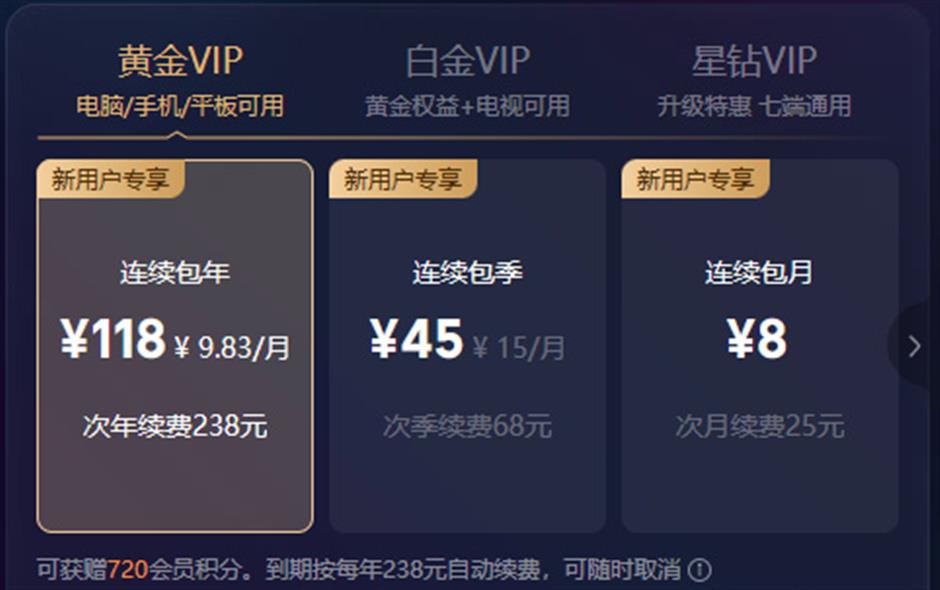iQiyi restores HD mirroring rights for VIP members
iQiyi.com, a popular Chinese video-streaming platform, has restored HD mirroring rights for its members after earlier restrictions drew wide controversy among users.
The mirroring service is now available in 720P and 1080P definition for iQiyi Gold VIP members who are still subscribed as of February 20, and for members with a single monthly/quarterly/annual pass before their membership expires, the Chinese version of Netflix announced on Monday.

iQiyi issues a notice about restoring HD mirroring rights onto TV and relaxing restrictions on log-in devices on Monday.
Users with an automatically renewed monthly/quarterly/annual pass have full access to HD mirroring service unless their subscriptions are suspended.
iQiyi had restricted its gold members to a mirroring resolution of only 480p on January 11, leading to a breach of contract lawsuit filed against the streaming site by a user surnamed Zhu. Upgrading to a platinum membership was required for watching videos in higher resolution on TV, at an extra fee of 80 yuan (US$11.87) per year.

iQiyi has various membership programs with different levels of permission.
In response to consumer complaints, iQiyi now allows its paid members to log in on five devices, regardless of their types, starting from February 20.
The number of devices playing at the same time is limited to two or three, depending on the type of membership, it said.
It has been a common practice for video-streaming apps to limit the number of log-in devices to hinder consumers from sharing their memberships.
The concession from iQiyi came after it was summoned by the Shanghai Consumer Council which said it was "unreasonable" for the platform to restrict consumers' ability to cast content onto their TVs and increase revenue in such a manner.
Chinese video apps have been receiving complaints from users who believe the platforms have violated their service agreements. Tencent Video, for example, faced angry responses when it placed advertisements at the beginning and middle of every episode of TV series, which broke its promise of advertisement-free viewing for members.















